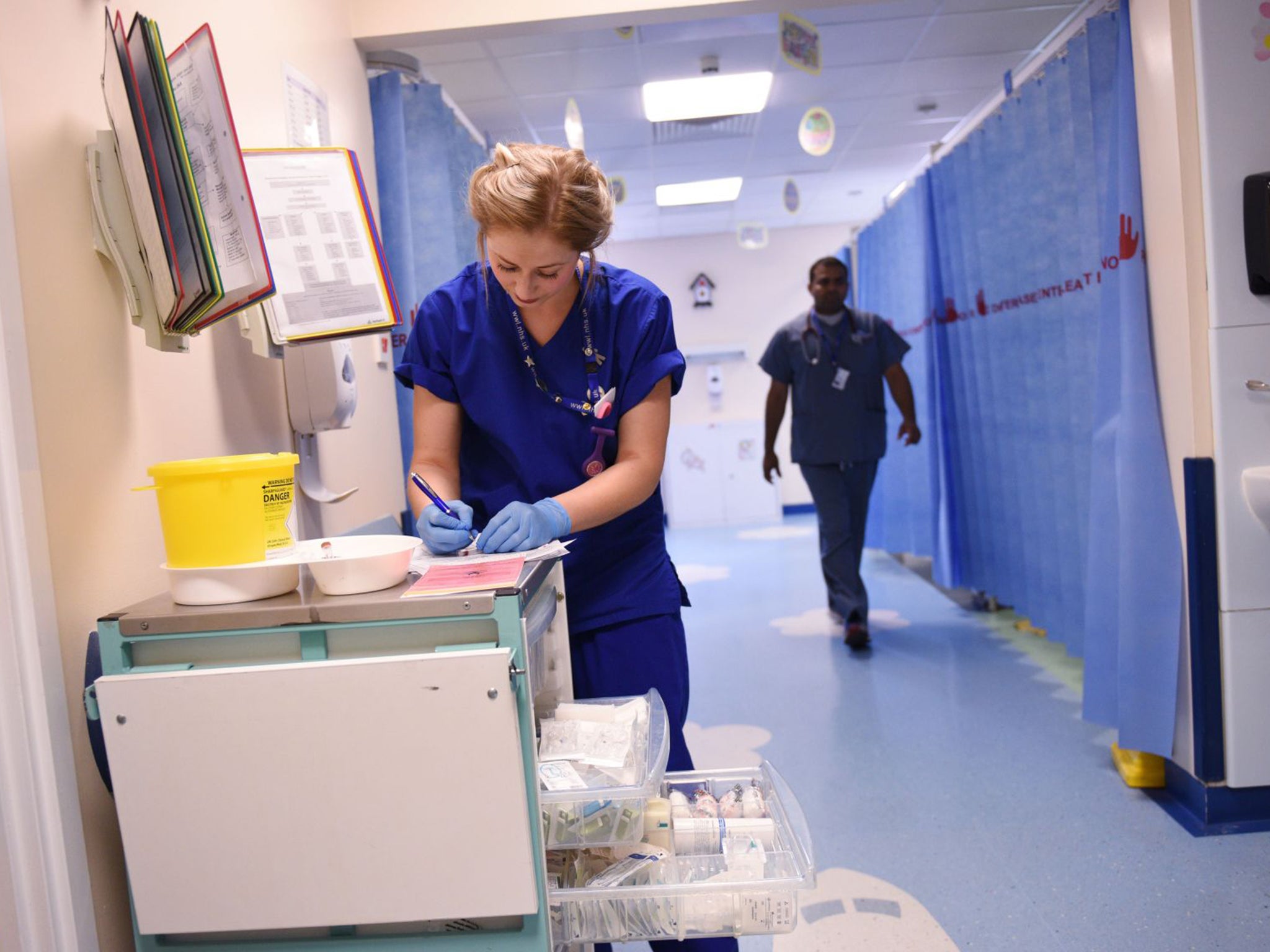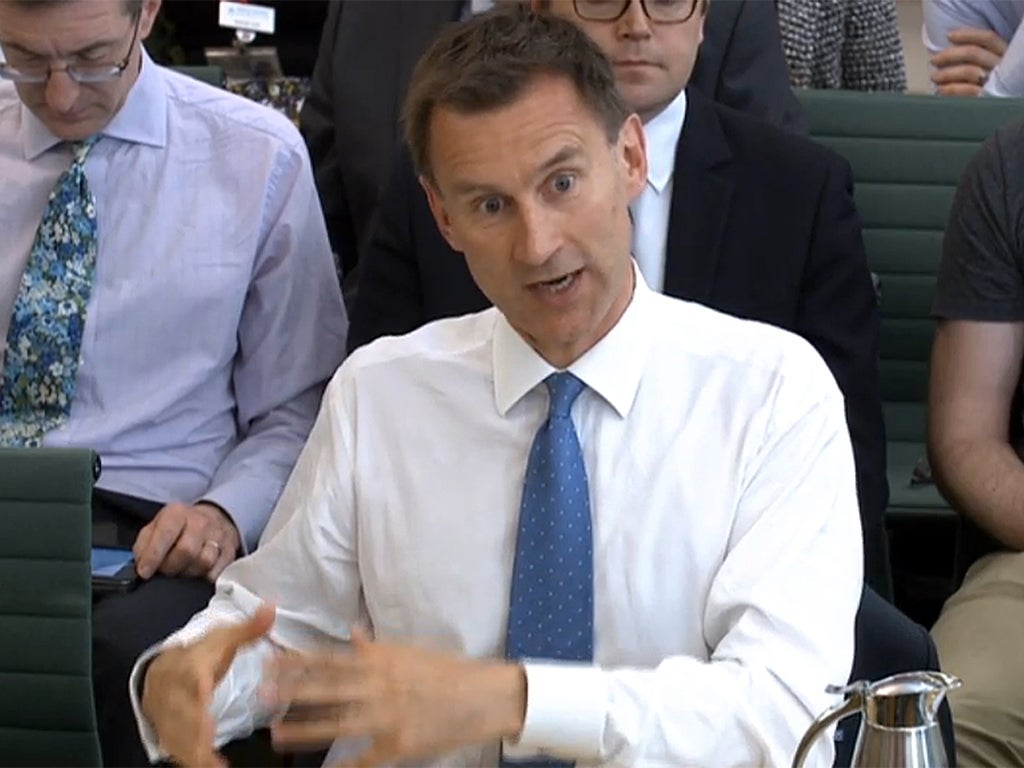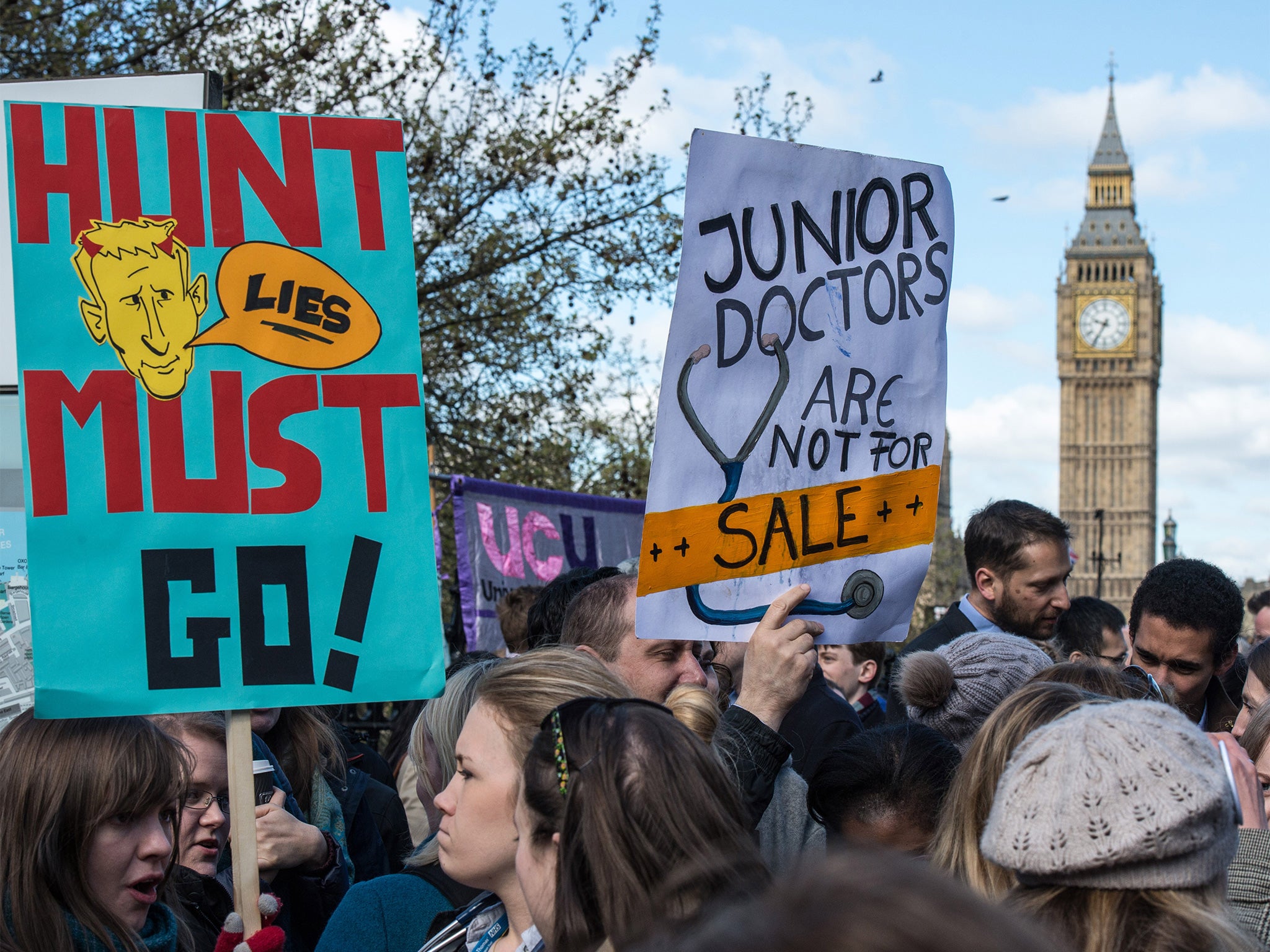Seven-day NHS plan contains ‘serious flaws’ and is ‘completely uncosted’
Highly critical report on NHS staffing levels by influential Public Accounts Committee finds that pressure on hospitals to save money is already leading to shortfalls on wards

The Government has made “no coherent attempt” to understand how many more doctors, nurses and other NHS staff will be needed to deliver its flagship manifesto promise of a seven-day NHS, MPs have said.
In a highly critical report on NHS staffing levels, the influential Public Accounts Committee found that pressure on hospitals to save money was already leading to shortfalls on wards, and called for an urgent review of the size of the clinical workforce in England.
Despite committing to a £10bn funding increase for the NHS by 2020 – money that must cover all the work the NHS does, at a time of ever-rising demand – the Government had not made a separate costing for expanding services on Saturdays and Sundays, the report found.

The findings will be a blow to Health Secretary Jeremy Hunt, who has repeatedly asserted that the Government is delivering its manifesto pledge of a “truly seven-day” service. The Department of Health said the report had not properly taken account of increases in the NHS workforce since 2010.
But Meg Hillier, chair of the PAC, said there were “serious flaws” in the Government’s approach to staffing the NHS and said that, without urgent action, the public would soon pay the price with higher waiting times and greater costs to taxpayers.
“Taxpayers are being asked to accept uncosted plans for a seven-day NHS – plans which therefore present a further serious risk to public money,” she said. “It beggars belief that such a major policy should be advanced with so flimsy a notion of how it will be funded – namely, from money earmarked to cover all additional spending in the NHS to the end of the decade.
“Taxpayers are entitled to ask questions about the financial security of the NHS and the level of service it is able to provide both now and in the future.”
The report cited figures from a recent National Audit Office analysis that indicated that, in 2014, the NHS had a staffing shortfall of around 6 per cent – the equivalent of around 50,000 clinical staff.

It criticised the Department of Health for assuming that the £10bn pledge could “cover everything”, while warning that the simultaneous requirement on NHS England to cut £22bn from its budget by 2020 was leading to “overly optimistic and aggressive” rota planning in hospitals, which in turn was creating staffing shortages. The savings targets set by national bodies were “unrealistic” the report said.
The undersupply of staff would hit patient trust in the health service, it added, and could lead to longer waiting times and shortcomings in care quality.

Dr Mark Porter, chair of council at the British Medical Association, the union embroiled in a long-running dispute with the Government over the new junior doctor contract, said the situation was “only set to get worse”.
“The BMA is clear that patients should have access to the same high quality of care, seven days a week, but if the Government wants more seven-day services, then it must finally answer the question asked by doctors, senior NHS leaders, medical royal colleges and now the Public Accounts Committee: how will it staff and fund them?” he said.
Shadow Health Minister, Justin Madders, said: “This devastating report from the Public Accounts Committee exposes the serious gaps in the Tory Government’s approach to safe staffing in the NHS. Everybody would support the vision of a seven-day NHS, but David Cameron’s plans are simply not credible without the extra staff the NHS desperately needs.”
A Department of Health spokesperson said there were “clear plans to increase capacity in the future in order to deliver a safer, seven-day NHS“.
“We’ve got more than 25,300 extra clinical staff caring for patients already since 2010, and because we’ve increased nurse training places by 15 per cent there are currently 50,000 nurses in training,” the spokesperson said. “By 2020, we expect to have 11,420 more doctors working in the NHS, coupled with 10,000 nursing, midwife and allied health professional training places through our reforms. By March next year, we will provide a quarter of the population with seven-day care.”
The PAC report was published as two new studies cast doubt on the evidence for a weekend effect on hospital mortality. The papers, published in The Lancet, indicated that the any link between weekend staffing levels and mortality rates could be a “ major oversimplification”, experts said.
The first paper, by researchers at the University of Birmingham, found no association between senior doctor staffing levels at the weekend and mortality rates. The second, led by Kings College London and University College London, found no weekend effect on survival for stroke care patients, but instead uncovered variations throughout the week.
Join our commenting forum
Join thought-provoking conversations, follow other Independent readers and see their replies
Comments
Bookmark popover
Removed from bookmarks